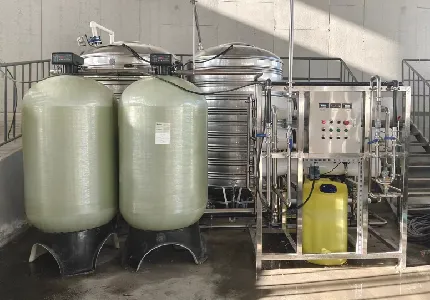loading...
- No. 9, Xingyuan South Street, Dongwaihuan Road, Zaoqiang County, Hengshui, Hebei, China
- admin@zjcomposites.com
- +86 15097380338
- Welcome to visit our website!
frp pressure vessel filter
Understanding FRP Pressure Vessel Filters
Fiber Reinforced Polymer (FRP) pressure vessel filters are becoming increasingly popular in various industrial applications due to their superior strength-to-weight ratio, corrosion resistance, and durability. These filters play a crucial role in fluid and gas filtration processes, providing an effective solution for industries ranging from water treatment to oil and gas extraction.
What is FRP?
FRP, or Fiber Reinforced Polymer, consists of a polymer matrix reinforced with fibers—commonly glass, carbon, or aramid fibers. This composite material offers enhanced mechanical properties compared to traditional materials like metals or pure polymers, making it an ideal choice for applications where strength, lightweight characteristics, and resistance to harsh environments are essential.
Advantages of FRP Pressure Vessel Filters
1. Corrosion Resistance One of the most significant advantages of FRP is its ability to resist corrosion. Traditional metal vessels often succumb to rust and degradation when exposed to aggressive chemicals, but FRP vessels maintain their integrity even in corrosive environments. This property extends the lifespan of filters and reduces maintenance costs.
2. Weight FRP vessels are considerably lighter than their metal counterparts. This reduced weight simplifies installation, transportation, and overall handling. In applications where weight savings are crucial—such as offshore drilling or remote locations—FRP filters prove to be highly advantageous.
frp pressure vessel filter

3. Design Flexibility The manufacturing process of FRP allows for more intricate designs and configurations, catering to specific filtration needs. Engineers can customize FRP filter vessels to fit unique processes while maintaining efficiency and performance.
4. Thermal Stability FRP materials can withstand a wide range of temperatures, making them suitable for applications that involve heat fluctuations. This stability ensures that the filtration process remains consistent even under varying temperature conditions.
5. Cost-Effectiveness Although FRP vessels may have a higher initial investment compared to traditional materials, their long-term benefits often outweigh the costs. The durability and reduced maintenance requirements lead to lower total cost of ownership.
Applications of FRP Pressure Vessel Filters
FRP pressure vessel filters are used in a diverse array of industries. In water treatment facilities, they are employed to filter out contaminants, ensuring clean and safe water supply. The oil and gas industry utilizes FRP filters in separation processes, removing impurities and enhancing product quality. Additionally, these filters are increasingly being used in the chemical processing industry, where their resistance to corrosive substances is vital.
Conclusion
In conclusion, FRP pressure vessel filters present a forward-thinking solution to the challenges faced by various industries. Their remarkable properties, including corrosion resistance, lightweight, and design flexibility, make them an ideal choice for modern applications. As industries continue to seek efficient and cost-effective filtration solutions, the adoption of FRP technology is likely to expand, paving the way for enhanced performance in fluid and gas filtration processes. Embracing new materials such as FRP will be essential in addressing the increasing demands on industrial filtration systems, ensuring sustainability and operational efficiency in the long run.
-
The Rise of FRP Profiles: Strong, Lightweight, and Built to LastNewsJul.14,2025
-
SMC Panel Tanks: A Modern Water Storage Solution for All EnvironmentsNewsJul.14,2025
-
GRP Grating: A Modern Solution for Safe and Durable Access SystemsNewsJul.14,2025
-
Galvanized Steel Water Tanks: Durable, Reliable, and Ready for UseNewsJul.14,2025
-
FRP Mini Mesh Grating: The Safer, Smarter Flooring SolutionNewsJul.14,2025
-
Exploring FRP Vessels: Durable Solutions for Modern Fluid HandlingNewsJul.14,2025
-
GRP Structures: The Future of Lightweight, High-Performance EngineeringNewsJun.20,2025
